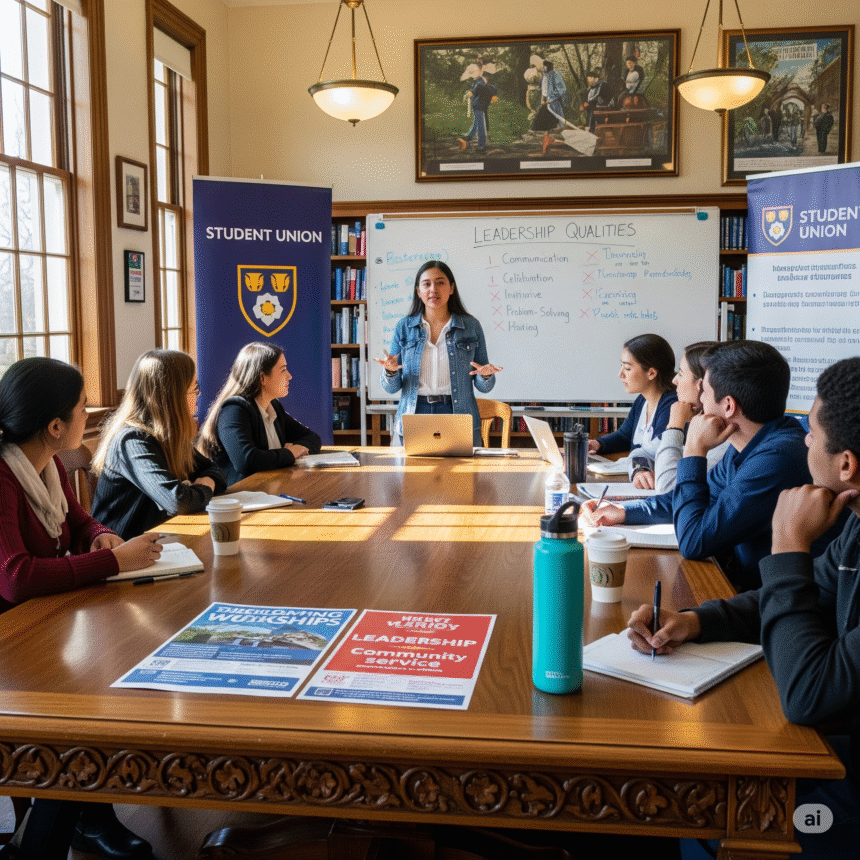The Role of Student Unions in Cultivating Future Leaders Exploring how student unions prepare young minds for leadership and governance.
Introduction
Student unions have long been a cornerstone of educational institutions, fostering leadership, advocacy, and community building among young people. In India, these unions have historically been a breeding ground for future leaders, influencing not just campus policies but also national discourse. From Mahatma Gandhi’s student activism to contemporary leaders who began their journey in student unions, the influence of these bodies in shaping leadership is undeniable. This article delves into the pivotal role student unions play in nurturing the next generation of leaders and examines their relevance in today’s socio-political landscape.
Historical Importance of Student Unions in India
1. Cradle of National Movements
Student unions were instrumental in India’s struggle for independence, providing a platform for young voices to challenge colonial rule.
- Example:
- The All India Students’ Federation (AISF), established in 1936, played a crucial role in mobilizing students for India’s freedom struggle.
2. Post-Independence Leadership Development
Many prominent Indian leaders, including Arun Jaitley, Lalu Prasad Yadav, and Sitaram Yechury, began their political careers through student unions. These unions served as training grounds for public speaking, negotiation, and mass mobilization.
(Source: Lok Sabha Archives)
The Role of Student Unions in Leadership Cultivation
1. Building Leadership Skills
Student unions provide a unique environment where young individuals can learn to lead, organize, and represent diverse groups.
- Key Skills Developed:
- Public speaking and debate.
- Negotiation and conflict resolution.
- Decision-making and policy formulation.
2. Advocating for Change
Student unions empower young people to advocate for their rights and address issues affecting their peers, from better campus facilities to mental health support.
- Example:
- Recent protests by student unions at Jawaharlal Nehru University (JNU) highlighted concerns over fee hikes and access to education.
(Source: University Grants Commission)
3. Fostering Political Awareness
Active participation in student unions exposes young individuals to governance processes, instilling a deeper understanding of democracy and civic responsibility.
- Example:
- The Delhi University Students’ Union (DUSU) elections serve as a microcosm of India’s democratic processes, complete with campaigning, debates, and elections.
Challenges Facing Student Unions
1. Politicization of Student Movements
The involvement of political parties in student unions has sometimes led to the prioritization of political agendas over student welfare.
2. Lack of Inclusivity
Despite their role in representation, some student unions struggle to ensure diversity, particularly in terms of gender and socio-economic backgrounds.
3. Limited Autonomy
Administrative restrictions often limit the ability of student unions to address key issues effectively.
Strategies to Enhance the Role of Student Unions
1. Promoting Independent Leadership
Encouraging student unions to operate autonomously, free from external political influence, can enhance their focus on student welfare and leadership development.
2. Ensuring Inclusivity
Policies that promote diversity within student unions can ensure representation for marginalized communities, fostering a broader leadership base.
3. Integrating Training Programs
Workshops on leadership, public policy, and governance can equip union members with practical skills for future roles.
- Example:
- Collaborative programs with organizations like the National Institute of Public Administration.
(Source: Ministry of Education)
Impact of Student Unions Beyond Campus
1. Gateway to Public Leadership
Student union leaders often transition into mainstream politics, bringing with them grassroots experience and advocacy skills.
- Example:
- Kanhaiya Kumar, a former JNU Students’ Union President, became a prominent voice in Indian politics.
2. Social Impact
Through campaigns and initiatives, student unions address societal issues such as gender equality, environmental conservation, and mental health awareness.
- Example:
- Student-led environmental campaigns in universities across India have contributed to campus sustainability policies.
Opinionated Yet Balanced Perspective
Student unions remain vital in preparing future leaders, offering a platform for young individuals to hone their skills, understand governance, and engage with societal issues. While challenges such as politicization and limited inclusivity persist, reforms can strengthen their role in leadership cultivation. By fostering an environment of learning, representation, and advocacy, student unions can continue to shape India’s leaders of tomorrow.
Conclusion
The role of student unions in cultivating future leaders is both historic and evolving. These unions act as a bridge between academic learning and practical governance, equipping young individuals with the tools to lead and inspire. As India looks toward a future defined by its youth, strengthening student unions and their role in leadership development will be crucial for the nation’s progress.


Leave a Reply